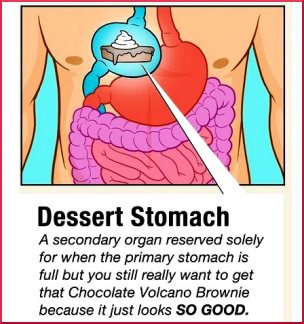
Yesterday, Childhood Obesity News talked about morbid or severe obesity. Another important term is “co-morbidity.” In the realm of obesity, co-morbidities can include the well-known insulin resistance syndrome (or metabolic syndrome), Type 2 diabetes and heart disease. Obese children are also apt to suffer from high blood pressure, asthma, obstructive sleep apnea, structural damage to bones, fatty liver disease and a host of other complications.
This is how Dr. Neal Halfon, a UCLA pediatrics professor, expresses the idea:
Obesity might be causing the co-morbidity, or perhaps the co-morbidity is causing obesity — or both might be caused by some other unmeasured third factor. For example, exposure to toxic stress might change the neuroregulatory processes that affect impulse control seen in ADHD, as well as leptin sensitivity, which can contribute to weight gain. An understanding of the association of obesity with other co-morbidities may provide important information about causal pathways to obesity and more effective ways to prevent it.
So, obesity can cause another condition, or the other thing causes the obesity, or they both sprang from the same third-party cause, or from different and independent causes. The last possibility becomes rarer as science advances and more is understood about the interrelatedness of different body systems and the brain. And still, depression and social dysfunction lurk around the edges of the scene, ready to worsen whatever problems already exist.
In Preventing Childhood Obesity: Evidence Policy and Practice, edited by Elizabeth Waters, the point is made that morbidity and mortality used to relate more to infectious diseases, but a “dramatic shift” took place. Now, more deaths result from causes related to lifestyle, like obesity. This brings up the whole question of what “lifestyle” means, and whether those who try so hard and unsuccessfully to control their weight through diet and exercise are really choosing that “lifestyle.” But here is the interesting part:
Figures for the numbers of children affected by co-morbidities are remarkably hard to obtain. BMI or obesity status may not be recorded when diagnoses of ill-health are made in pediatric clinics, while in the population at large the early stages of chronic disease may not be diagnosed among overweight and obese children.
The lack of consensus about obesity-related illnesses is evidenced by differences between studies in terms of the range of co-morbidities included. Studies vary in terms of the BMI cut-off points used to define obesity, as well as the perspective employed from which to measure costs. Most studies assume a national health system perspective, while some assume a narrower reference frame in terms of geographical jurisdiction or target group.
What this all boils down to is, nobody really knows what is going on, in specific and incontrovertible detail, but the overall picture is grim. The options for treatment of severe obesity in children are limited, and many health care providers feel that it’s too easy to jump to the surgical choice while skipping over other possibilities. In some places, what seems like a generous offer could be devastatingly harmful. In South Australia, for instance, many young people with a BMI of over 40 are able to have lap-band surgery when perhaps not enough other routes have been explored.
Childhood obesity rates in general are said to be leveling off, but severe obesity has increased, says the American Heart Association, which defines 5% of American children as severely obese. If bariatric surgery is the only option for them, that adds up to an awful lot of surgery, and an awful lot of permanently altered lives. Dr. Pretlow has written:
Insurance should cover treatment of morbidly obese kids in residential centers, rather than paying for bariatric surgery. This should include coverage for follow-up after discharge and “halfway houses,” to gradually reintroduce the kids to the temptations of comforting, highly pleasurable foods in the real world and to develop coping skills that don’t involve eating. Follow-up should continue indefinitely once the kids return to their home environment.
In Overweight: What Kids Say, Dr. Pretlow expands on that idea, suggesting that while a live-in weight-loss center might seem expensive at the time, the various forms of surgery can very well turn out to be more expensive in the long run because of the lifelong side effects. A necessary part of changing the “lifestyle” is learning to cope with the stresses of life in other ways than eating for comfort. A person who goes through a bariatric surgical procedure has to learn these life skills anyway in order to maintain weight loss and avoid undoing the effects of the operation. If successful life skills can be learned with or without surgery, why not just skip the surgery and do it “on the natch”?
Your responses and feedback are welcome!
Source: “Childhood obesity linked to more immediate health problems,” MachinesLikeUs.com, 01/14/13
Source: “Preventing Childhood Obesity: Evidence Policy and Practice,” Books.Google.com
Source: “5 percent of U.S. children, teens classified as ‘severely obese,’ ” Heart.org, 09/09/13
Image by CollegeHumor.com

 FAQs and Media Requests:
FAQs and Media Requests: 











